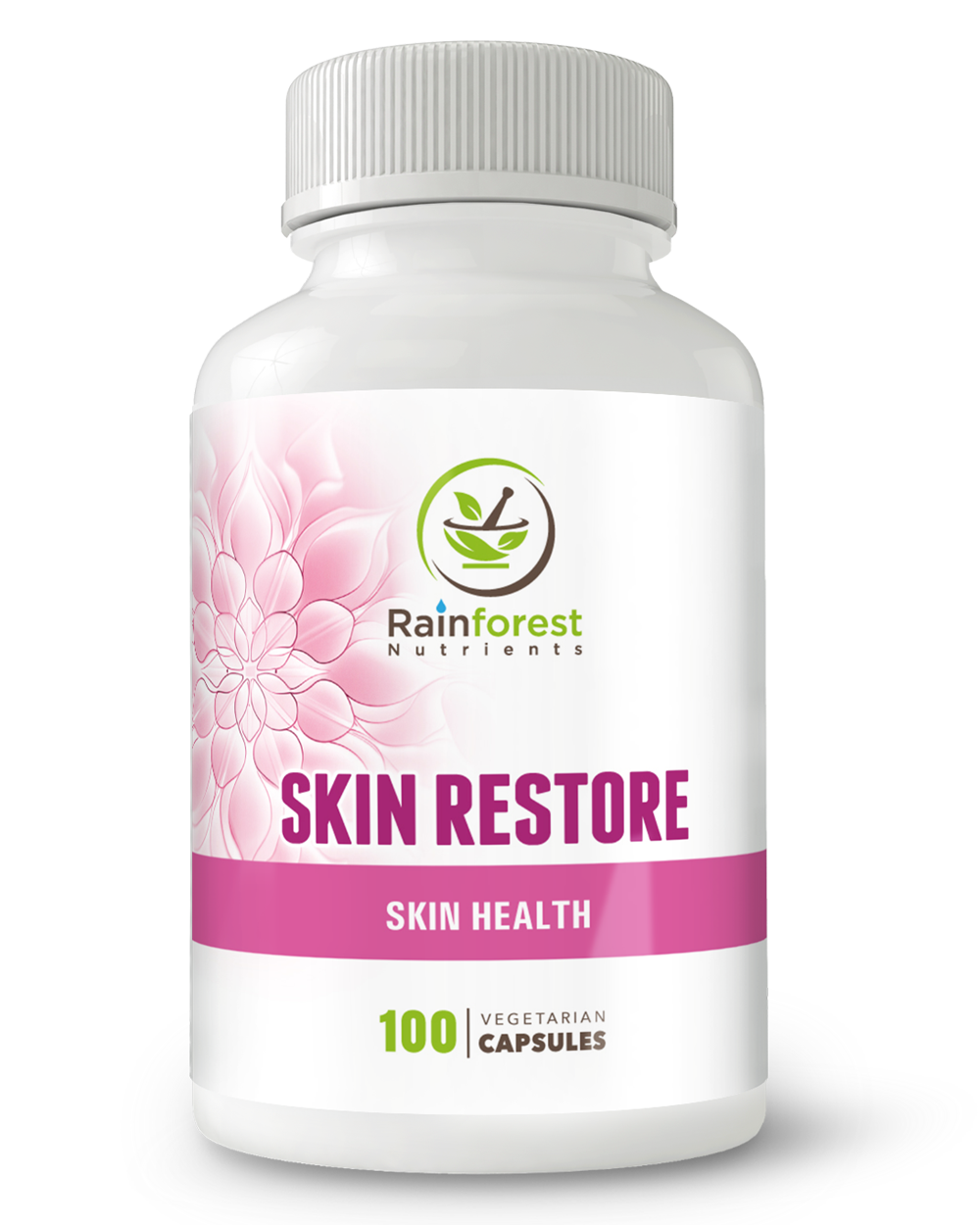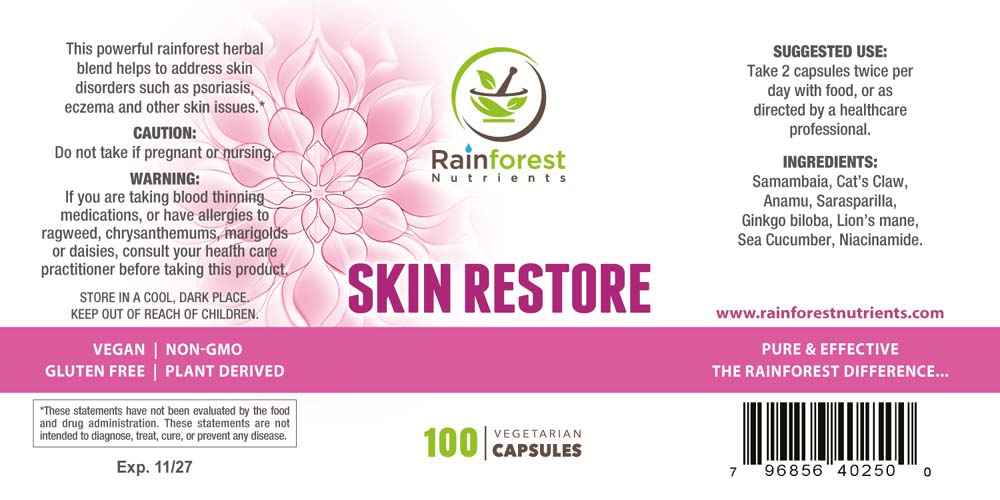

Skin Restore is a blend of plants and herbs that fights free radical damage and enhances cellular protection. Skin Restore was formulated to aid and restore skin conditions, such as acne, psoriasis and eczema. Listed below are the herbal ingredients and their reported health benefits.
Since the recent advancements in technology, we are exposed to EMF (electro magnetic frequencies) on a daily basis. Microwaves, cell phones, iPads, Bluetooth, headsets, etc. are highly suspect of body cellular damage through free radical exposure, especially cell phone usage, which has become a very necessary part of our daily activities. Skin Restore is a blend of plants and herbs that helps fight free radical damage and enhances cellular protection.
Below
Anamu (whole herb) anti-viral, anti-candida, anti-bacterial, immune stimulant.
Samambaia (leaves) helps with psoriasis and other skin conditions. A cellular protector and anti-aging aid.
Cat's Claw (vine bark) * stimulates immune system, protects cells, fights free radicals, reduces inflammation.
Sarsaparilla (root) psoriasis, dermatitis, leprosy and other skin disorders... as a blood purifier and general detoxification aid.
Ginkgo Biloba improves blood flow to the brain and acts as an antioxidant.
Lion's mane mushroom (Hericium Erinaceus) is a nontoxic medicinal (and culinary) mushroom believed to stimulate nerve growth. Scientific research shows that lion's mane contains a number of health-promoting substances, including antioxidants and beta glucan.
Sea cucumber is used in traditional Chinese medicine for its anti-inflammatory compounds. Sea cucumber is rich with niacin, calcium, taurine, lysine, vitamin A, B-1 (thiamine), B-2 (riboflavin), and B-3 (niacin), and vitamin C as well as the minerals Calcium, Iron, Magnesium, and Zinc.
Niacinamide (B3) is a form of vitamin B3. Niacinamide is U.S. Food and Drug Administration (FDA) approved for the treatment of pellagra, or niacin deficiency. Pellagra is a nutritional disease that occurs due to insufficient dietary amounts of vitamin B3 or the chemical it is made from (tryptophan). Symptoms of pellagra include skin disease. Niacinamide is widely used in skin care products. A study organized by Proctor and Gamble found that not only is niacinamide well-tolerated by all skin types, but also reduces the appearance of hyperpigmentation, redness, yellowing, and blotchy spots on the face.
Niacinamide (B3)...is a form of vitamin B3. Niacinamide is U.S. Food and Drug Administration (FDA) approved for the treatment of pellagra, or niacin deficiency. Pellagra is a nutritional disease that occurs due to insufficient dietary amounts of vitamin B3 or the chemical it is made from (tryptophan). Symptoms of pellagra include skin disease, diarrhea, dementia, and depression. Taking niacinamide seems to improve joint flexibility and reduce pain and swelling. Some people who take niacinamide might be able to cut down on standard pain killing medications. Niacinamide is widely used in skin care products. A study organized by Proctor and Gamble found that not only is niacinamide well-tolerated by all skin types, but also reduces the appearance of hyperpigmentation, redness, yellowing, and blotchy spots on the face. Many studies with mice are showing that niacinamide is improving memory and Alzheimer's disease.
Caution: Do not take if pregnant or nursing. If you are taking blood-thinning medications, or have allergies to ragweed, chrysanthemums, marigolds or daisies, consult your health care practitioner before taking this product.
These statements have not been evaluated by the Food and Drug Administration. This product is not intended to diagnose, treat, cure or prevent any disease.
Warnings
When using nutritional supplements, please consult with your physician if you are undergoing treatment for a medical condition or if you are pregnant or lactating.






